How to Diet Against Disease
Dieting against disease is as much about knowing what foods to eat as it is knowing what not to eat.
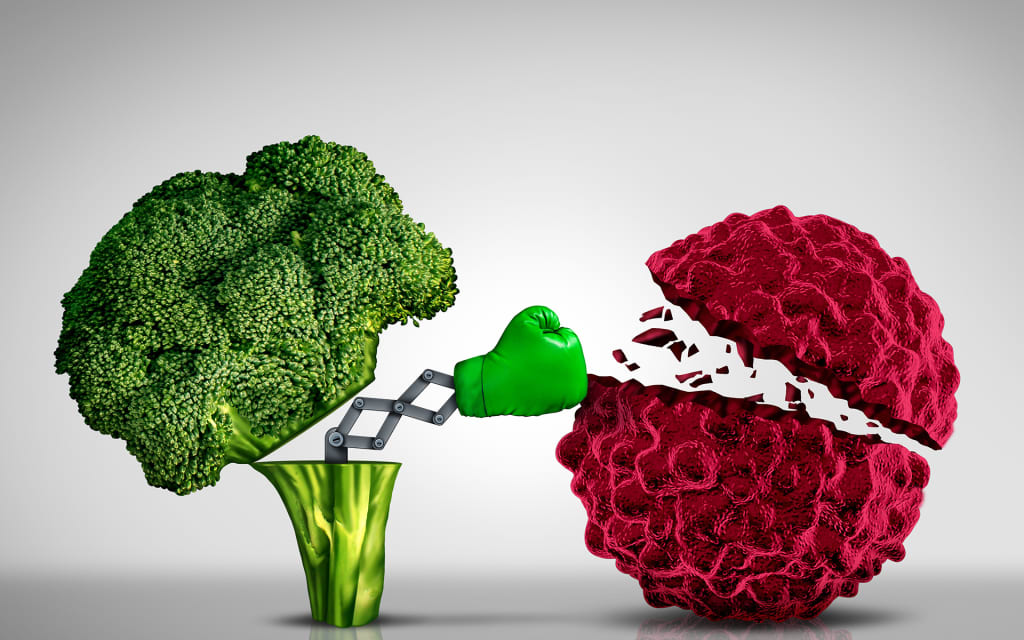
In the late 1980s, an extraordinarily strong case for the medicinal power of food was made by the National Research Council (NRC) of the National Academy of Sciences. Its three-year review of more than 5,000 scientific studies concluded that dietary changes could substantially reduce the risk of many kinds of illness, including heart disease, stroke, hypertension, and cancer. Today, it is common practice to eat healthily to diet against disease, but there are many misconceptions and exaggerations regarding which foods actually ward off or contribute to health problems. Scientists, doctors, and nutritionists continue to study which foods help us diet against disease.
So far, the bulk of the evidence comes from studies by epidemiologists, who scan the world looking for links between diet and disease—the kind that show, for example, that heart attack rates climb when people eat a lot of the wrong fats and drop when they eat less fat in general but more of the right ones. Increasingly they're looking down among the cells and the enzymes that direct every chemical reaction within the body—even among the genes and their strands of DNA—to learn exactly how what we eat influences the body breakdowns associated with aging, from cancer to joint disease. Among the most important foods that can combat disease are:
Fish Oil May Prevent Arthritis
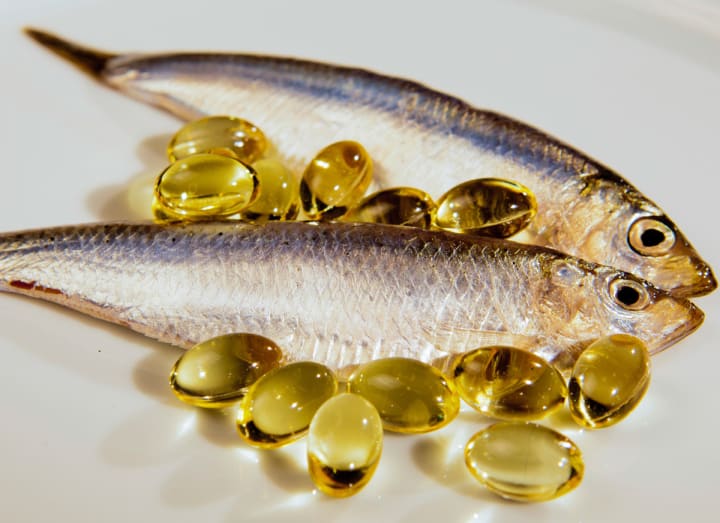
Image via Key Compounding
Some of the best disease-fighting substances are omega-3 fatty acids, found in fish and fish oil supplements. While omega-3s have been linked to a host of remarkable benefits from reducing heart attack risk to slowing the spread of breast tumors in animals, they've also been shown to help relieve arthritis and other diseases spurred on by inflammation, such as asthma and psoriasis. In those who take fish oil supplements, blood tests show a significant drop in two chemicals produced by white blood cells—interleukin-1 and tumor necrosis factor. Both are potent inflammatory agents. In the endless shuffling of molecules by which the body gets its work done, omega-3 fats release chemicals that suppress the production of these inflammatory agents.
Vitamin E Rejuvenates the Immune System
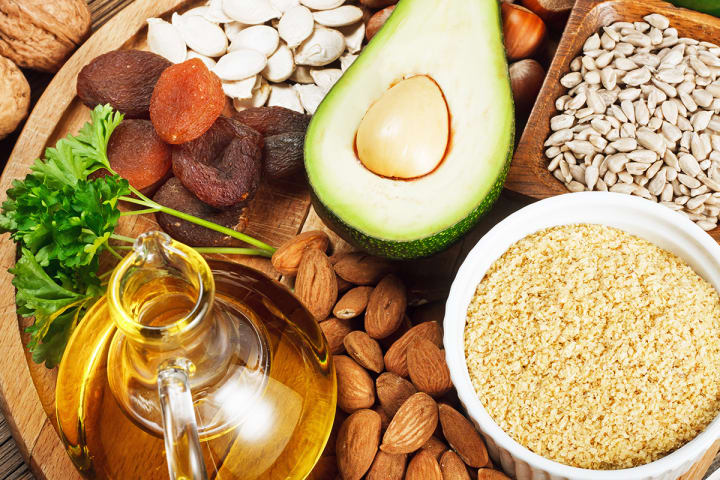
Image via VitaGene
Where do vitamins and minerals fit into the complex system of cells, antibodies and body chemicals that protect against infection and disease? Vitamin E, for one, has been shown to raise the immune system of older animals to equal younger ones. Research suggests that the vitamin becomes incorporated into the outer membrane of the immune system's helper T cells—sentries that spot invading bacteria and viruses and order up antibodies to attack them—and protects them from oxidative damage. Vitamin E also boosts the ability of immune cells called phagocytes to reduce free-radical reactions.
Nutrients, however, don't work in isolation. It's likely that entire diets are what promote or protect against disease. This is one reason why, in most scientists' eyes, supplements are no substitute for good, wholesome foods and why most advocate diet variety versus any single nutrient to ensure the proper vitamin/mineral interactions needed to fight disease. Otherwise, how much we need of any one nutrient may change dramatically depending on the overall composition of the diet.
Copper, Sugar, and Disease
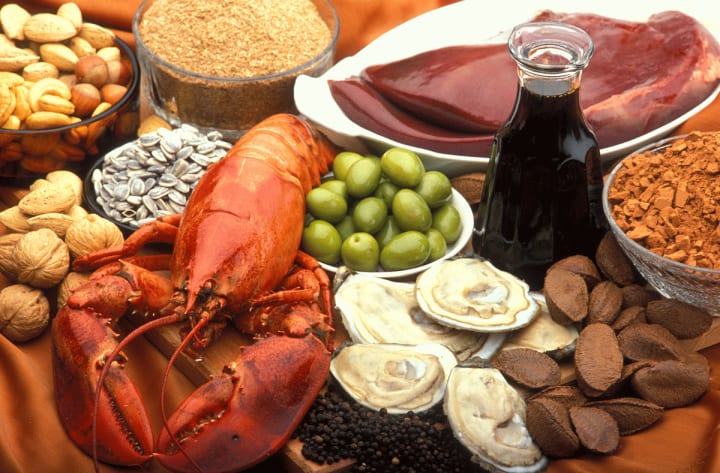
Image via Copper Alliance
For instance, studies have shown how a carbohydrate overload can trigger a copper deficiency, which in turn can cripple the immune system and damage the heart. Lab rats fed a diet rich in the sugar fructose, a pure carbohydrate, suffered heart damage, anemia, and lost the ability to produce antibodies—even though they were getting what's normally enough copper to do so. To maintain immune function, rats on a high-fructose diet need three times as much copper as rats fed starch.
"If the same copper-carbohydrate interaction is operating in humans, eating enough fresh vegetables, nuts, legumes, and other rich copper sources could be important," said one doctor, who suspects it is. “There's less copper in the American diet now because more foods are processed. And over the years we've been eating more high-fructose foods like corn-syrup-sweetened sodas and juices."
Calcium to Lower Colon Cancer Risks
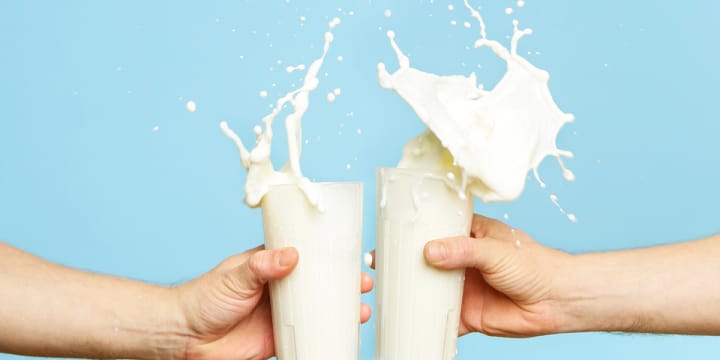
Image via The Huffington Post
On the cancer front, studies have been investigating how fat affects cells in the colon. "It appears to be an irritant," one doctor said. "In rats, the colon responds to high-fat eating by going into a burst of cell division to repair damage. And there's definite evidence that overabundant cell division is a forerunner of cancer."
But extra calcium in the diet brings overactive cells back to normal. When people at high risk of colon cancer were given 2,000 milligrams of the mineral daily, about twice the RDA, almost everyone's colon-cell activity quieted down. Within a month, the rate of cell division returned to a low-risk profile.
Smells that Repel Cancer
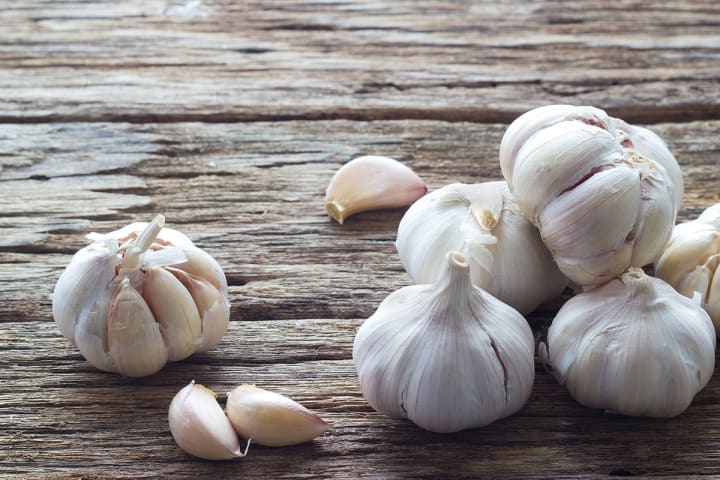
Image via Artisan House
Intrigued by reports that fresh and raw foods may have particular health value, one research team began looking at flavor and fragrance chemicals in fruits and vegetables. Some—glycyrrhetinic acid in licorice root, flavonoids in grapefruit—have proved "extraordinarily good anticarcinogens."
And, of course, there's garlic. When research on food and disease first started, the National Cancer Institute (NCI) discovered that the sulfur chemicals responsible for garlic's smell and taste also seemed to inhibit stomach cancer. The NCI then sponsored population studies in several provinces in China, where garlic is a mainstay of traditional cuisine, and ran comparative studies in provinces where the herb is not widely used.
The result: less stomach cancer in garlic-loving provinces, which in turn encouraged more detailed investigation. The sulfur compounds apparently inhibit liver enzymes that rev up carcinogens like nitrosamines (found in many processed meats, including bacon) into highly active forms that damage DNA. There's also evidence that sulfur compounds slow down over-rapid cell division, a frequent cancer precursor.
Personal Nutrition Prescriptions

Image via NY Daily News
In the final analysis, however, health depends not just on what is (or isn't) eaten, but on who eats it—a personal biochemistry that's just beginning to be understood. A diet full of saturated fat and cholesterol, for instance, raises the heart disease risk for many people but not everyone. Why can some load up on steak and eggs with impunity while others must watch every sliver of cheese? In research for which they received a Nobel prize, Michael Brown, M.D., and Joseph Goldstein, M.D., of the University of Texas, Dallas, discovered the protector gene responsible. And so it may be that we all have subtle genetic differences that make us more or less prone to various diseases. Some diet programs are starting to personalize nutrient requirements to accommodate for individual strengths and weaknesses in our genetic and immune systems.
Today's nutrition recommendations are based on average needs, but the average individual doesn't really exist. One person's immune system may require more vitamin C, another's more zinc to stay at peak performance. As the underlying genetics are better understood, it is becoming more and more possible to tailor nutrient advice to the individual. This view emphasizes what modern nutrition is really about. It is not a bland, ignorable business of food groups and vitamin pills, but a web of interconnected life processes as fragile as the cell membrane and as intricate as DNA. The raw material holds some of the keys to disease-free living.
About the Creator
James Porterson
Former obese teen turned nutritionist. Enjoys writing about staying active and proper nutrition.






Comments
There are no comments for this story
Be the first to respond and start the conversation.